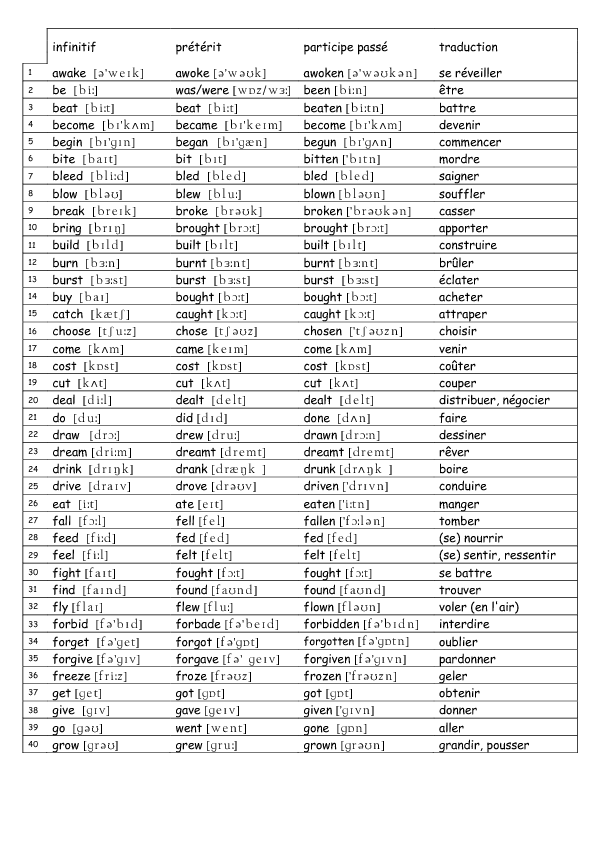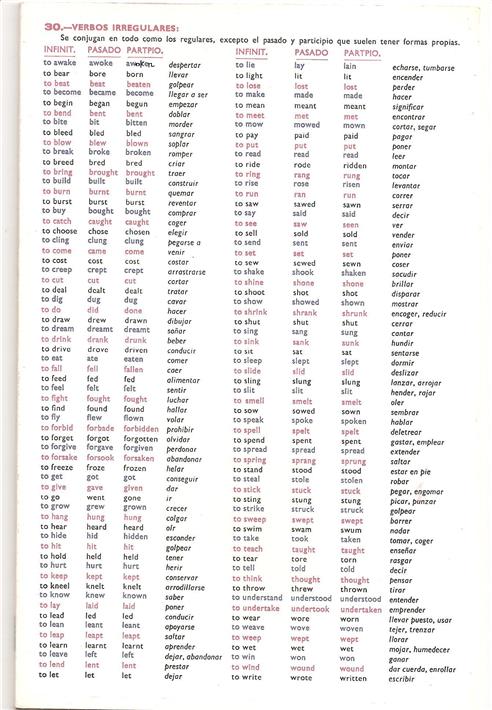

We simply add ‘ed’ – ‘d’ if the verb already ends in an ‘e’ to turn the verb from its base form to the past simple or past participle form. We would expect it to be ‘singed’, but the word changes to ‘sung’. The other, though, starts to go wrong in the past participle. The second of these, ‘finish’ follows the rules to a tee and is therefore a regular verb.

We have worked on two verbs in these examples, ‘sing’ and ‘finish’. ‘It was finished.’įinally, we can use the verb as an adjective, ‘The song is finished.’ We can use the passive form, which is preceded by an auxiliary (or helping) verb such as ‘was’. Usually, but not always, the addition of ‘ed’ turns the verb into the present perfect. The first is called the present perfect.Īs we can see, the action has just happened, it is in the present. ‘Singing is good for our soul.’ It’s Finished – The Part Participleįinally, we can use all verbs in three basic past participle forms. ‘We are singing.’ And, just to make things a little complicated, verbs sometimes act as nouns in the gerund form. This is known as the gerund, although most English native speakers do not use this terms. Next, we have the ‘ing’ version of the verb. ‘We like to sing in church.’ Ah, so this is a gerund! For example, ‘We sing in church’ in the infinitive form, which is easy to remember because the verb is preceded by ‘to’. The present simple tense, explaining something that is happening now.


 0 kommentar(er)
0 kommentar(er)
